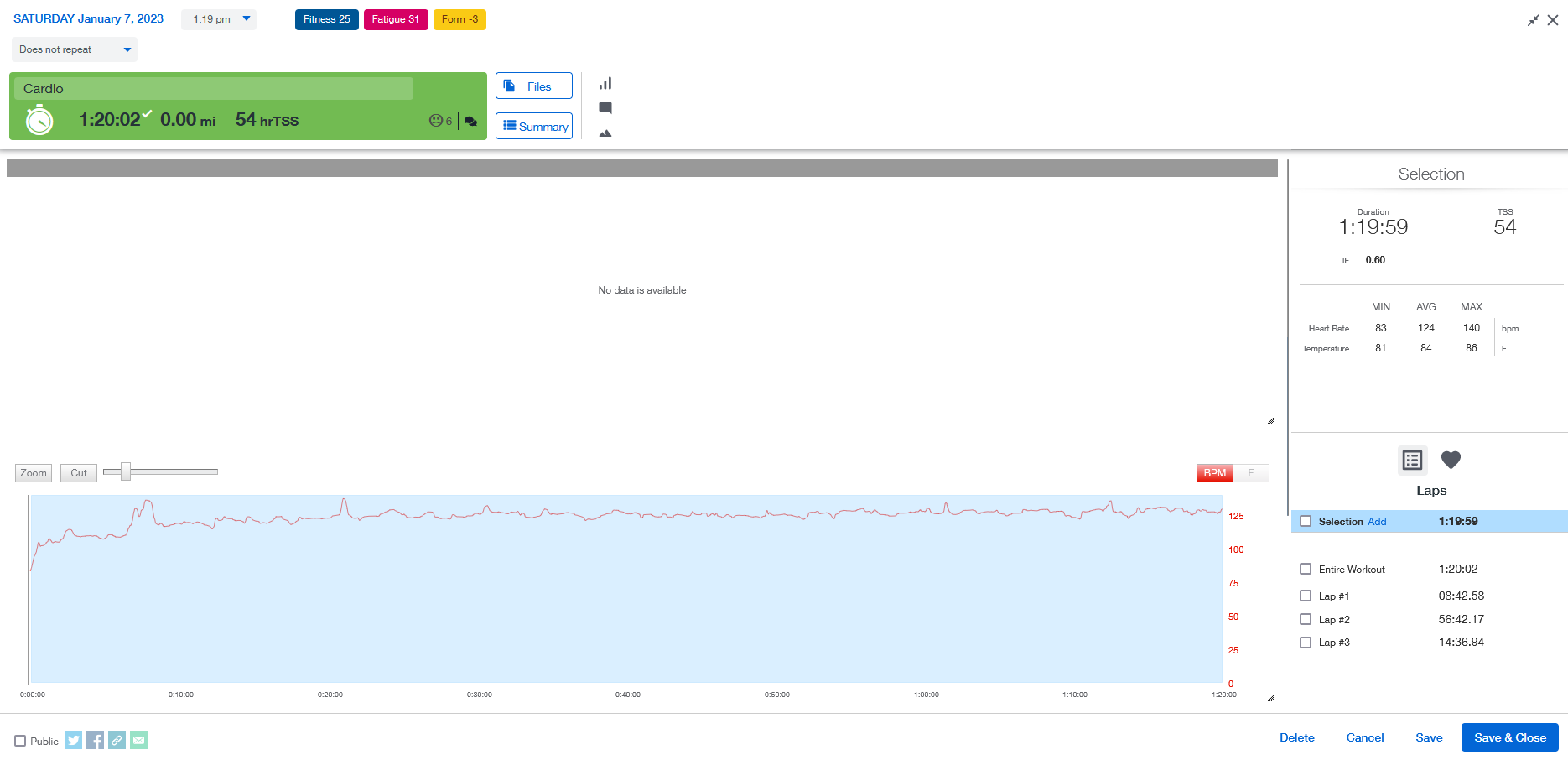Great question, and one which I am not sure has an easy answer. The first thing I will ask is whether you’re on beta-blockers for a cardiac or a non-cardiac issue (and I don’t expect you to divulge any specific medical information on this forum), because this can obviously influence the exercise prescription. If you’re coming back from a heart attack, for example, then caution is needed at higher intensities.
Coming back to your question, and assuming that you are healthy from a cardiac standpoint, HR becomes a far less reliable indicator of exercise intensity when beta blockers are being used. Studies have also shown that amongst individuals, the response is quite individual, and the HR response to exercise is non-linear, and therefore there is no easy or reliable formula to correct for beta blocker use. It likely depends on the condition being treated, the beta blocker dose, time of day etc, etc.
None of this helps you however, but in general, the HR effect will be blunted, so if your AeT HR off betas blockers is 135 bpm, then it will very likely be lower on beta blockers foer the same metabolic intensity. That’s about all that one can say, and the drift test will not be accurate.
RPE (rating of perceived exertion) is probably more reliable, especially if you are very experienced and in tune with your training intensities, but some people struggle to gauge their RPE, and other things can throw it off.
The only way to reliably determine your thresholds would be in a lab, with either lactate determinations or gas exchange. These can be costly tests, and aren’t available everywhere.
A couple of other quick points: (1) the chart that you added above looks to show almost no drift to my eye (I could be wrong though on that) but as I have said, I would not rely on a cardiac drift test to determine AeT HR.
(2) There is some suggestion in the literature that the long term training effect whilst on beta blockers is blunted, though there is limited published work on this. Is there an alternate treatment? Some patients take beta blockers for migraine prevention, for example, and there are other effective treatments now for this condition.
(3) Have you applied the MAF HR formula to your particular scenario? I am somewhat interested in where it would put you (purely out of curiosity). Do you have any thoughts on RPE at your ‘calculated’ AeT? Does it feel sustainable?
(4) Lastly, remember that ‘all training works’. Some is just more effective. So this may be a moot point, and I do not know what your goals are, but there is rarely anything negative to say about a large amount of low intensity work!
I am interested in whether any of the other coaches on this forum have encountered this scenario, and how they handled things.
